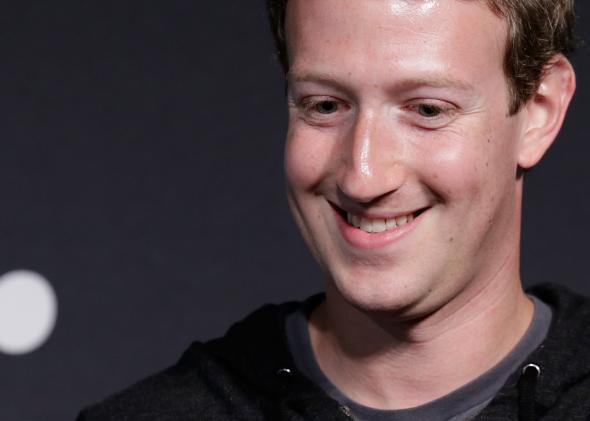Wednesday night, in a moment of maximum news overflow from Washington, Facebook posted a little note about teenagers. For the first time, 13- to 17-year-olds have the option of making everything they post on the site public. The company says this is because “they want to be heard.”
Really? In my reporting on young people and social media, I haven’t run into any teenagers lobbying to be “heard” more on Facebook. They are plenty heard already. But of course, this isn’t about what kids want. It’s about what Facebook wants, which is to make more money. Here’s the key bit from the New York Times story by Vindu Goel (which made A1 despite the bury-this timing):
Facebook has encountered controversy over its privacy policies in the past and is now facing additional scrutiny from the Federal Trade Commission, which is conducting an inquiry into other proposed changes to the company’s privacy policies. Those policies would give Facebook automatic permission to take a user’s post, including a post made by a teenager, and turn it into an advertisement broadcast to anyone who could have seen the original post.
If kids can share publicly, then their posts, or things they “like,” can also turn into the advertising fodder that the company is banking on for profits. How about their pictures—will those start showing up in ads, too? Hey, FTC, is this really OK?
Habituating kids to widespread sharing is good for Facebook’s bottom line. As Mark Zuckerberg put it in a radio interview in 2010, after launching another change aimed at getting users to share more: “We help you share information, and when you do that, you’re more engaged on the site, and then there are ads on the side of the page. The more you’re sharing, the more—the model all just works out.” (That was a rare moment of candor—the last time I quoted it, a company PR rep emailed to ask where it came from.)
Will the option of making their posts public hurt teenagers who use Facebook? I worry that some kids who do this won’t be the ones with the best judgment about what they’re sharing. Now their mistakes will follow them forever, to be easily searched for online when they apply for jobs or meet new people. This is already the case on sites like Twitter. But Facebook is the social media site that requires you to use your real name. So if you write something vicious or stupid, everyone knows it’s you.
At the same time, you could argue that teenagers would be better off assuming that everything they post on Facebook—and any other social media site—is publicly available to everyone. After all, the way to keep your posts private on Facebook is to stay off Facebook. But kids already lack a lot of privacy on Facebook, and they still share damaging things.
Until now, when kids signed up for the site, their posts were automatically shared with “friends of friends.” The sweetener in Facebook’s latest announcement is that “friends of friends” is no longer the default setting for teenagers. But many teens will still choose “friends of friends,” not understanding how porous it really is. Since kids often network with hundreds of people, who then have their own large networks, “friends of friends” easily means an audience of a few thousand people. That can help cyberbullying go viral. Or it can put kids at risk on Facebook from adult stalkers, though (thankfully) that’s rare.
Along with experts who work with kids, in my book and in the New York Times Magazine, I’ve been complaining about “friends of friends” for years. Now kids will start with “friends.” I feel heard.
But let’s see Facebook’s latest moves regarding teenagers for what they are: one more way to make money. Maybe the real silver lining here is that a lot of 13- and 14-year-olds tell me that they’re not bothering to sign up for Facebook. They’re on Instagram instead. Oh right, Facebook owns that, too.
